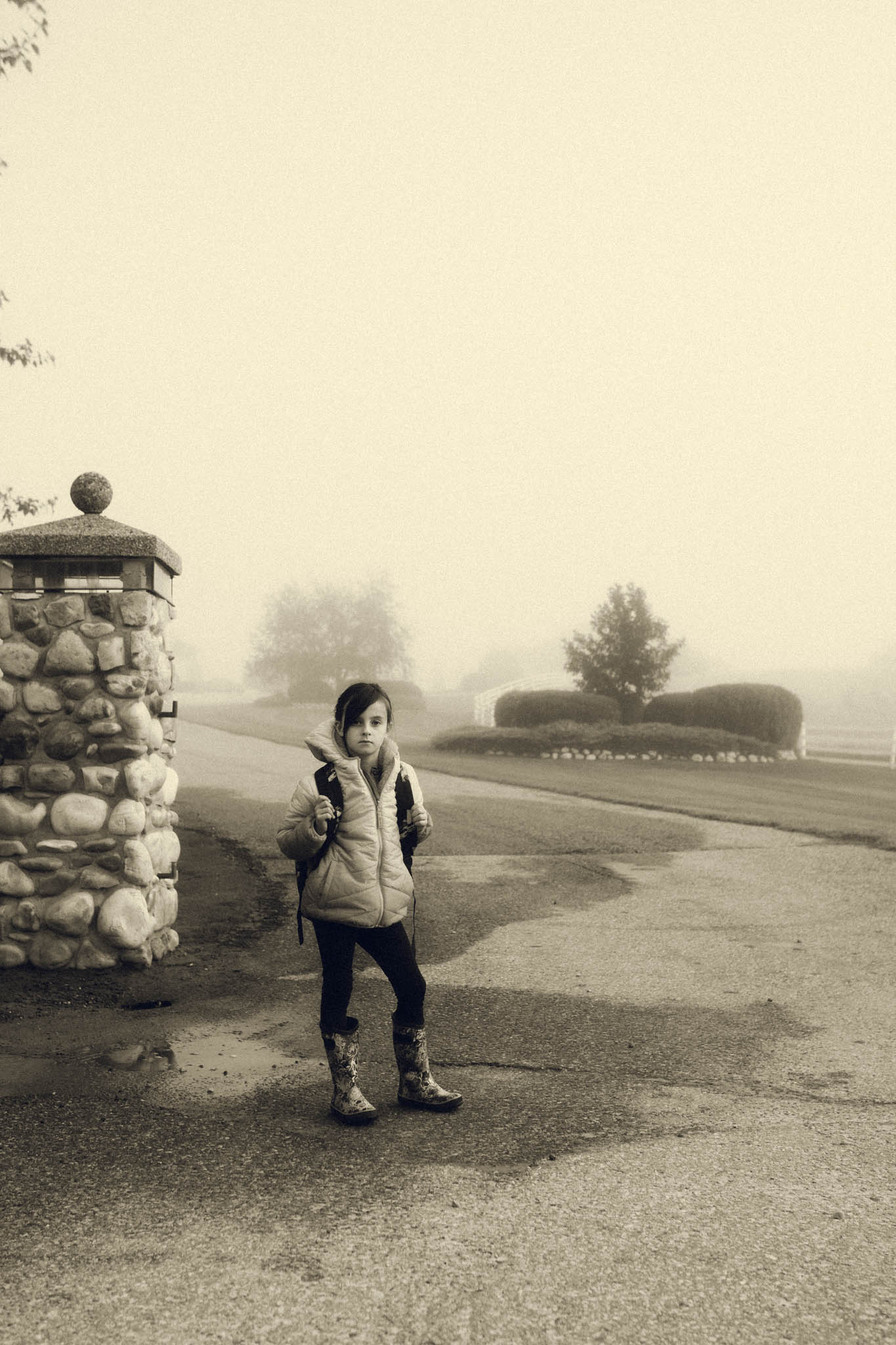I’m going to start this off by saying that I’m no expert on the education system. Shit I’m not even an expert at motherhood. But like most moms, my intuition is strong in regards to my children and something about how their education is being carried out feels out of alignment.
As parents, it’s common to feel like we don’t have options when it comes to our kid’s education. We either send them to school 5 days a week for 6 hrs each day where they are taught cooperation and obedience over critical thinking and creative play; or we quit our jobs to homeschool them. Private or charter schools are options, but they are expensive and often difficult to get in to. So for the majority of parents, our only options are homeschooling, or traditional public education.
THE FAILINGS OF PUBLIC EDUCATION
A relic handed down to us from the genesis of the Industrial Age, the public education system is outdated. As parents we are constantly told that it is “normal” for our 5-7 year olds to struggle with the transition into the school system, but there is nothing healthy about a child experiencing 1-2 years of separation anxiety and tantrums due to having to sit still and be quiet for 6 hours a day at an age where developmentally they need hours of free play and genuine 1:1 connection with their caregivers.
With it’s roots in early capitalism and the industrialization, the public education system itself operates against modern understanding of child development. Having studied the therapeutic qualities of play and its role in child development, I cannot get on board with a system that asks my young children to sit, wait, and be quiet for the majority of their day; Fuck most adults struggle with this. With rising rates of anxiety and depression for school-aged children, we have plenty of evidence to show that our current models of education are not aligned with our children’s overall mental health. Yet instead of incorporating more play and less work into our education model, our provincial government (here in good ole Berta) has increased academic expectations in all grades.
THE ECONOMIC FAILINGS OF HOMESCHOOLING
Homeschooling is touted by many as the answer to our educational problems, and research shows that homeschooling is highly beneficial. But what is missing from this conversation is the reality that for most families it is not possible to homeschool. In order to home educate, a parent must be available not only to facilitate the learning experience (most often the mother’s role), but also be home all day with their child. With rising costs of living and our current recession most families cannot live off of a one-person income.
THE SOCIAL/EMOTIONAL FAILINGS OF HOMESCHOOLING
In a society where we no longer have a close knit village to assist us with child rearing, many homeschooling parents never get a break. Although there are options with homeschooling groups in some communities, the reality is that for many parents, the emotional load of providing for their children is heavy enough without adding the load of becoming their sole teacher in the modern age with its lists of rules and regulations.
As a homeschooler, I would be my children’s primary educator and I would be responsible for following the provincial program of study (to some degree), as well as deciding whether to homeschool under a supervising school board, or to forgo a school board all together. I would also be responsible for creating and maintaining my child’s academic schedule, whether it be on a daily, or weekly basis. I’ve spoken to homeschooling parents who all assure me that homeschooling is super easy and fun, but this was not my experience for the short time that I tried it. Some parents thrive in this position; I know my limits and I am not one of them.
Unschooling is another homeschooling option (where there is little to no conventional sit down and study aspect to a child’s education and most of their learning is hands on, brought about by their natural environment’s routine. Although I believe this to be a super interesting way to approach education (and know that connections to educational content that has relevance to a child’s lived experience is much easier to integrate), it’s a little bit too unstructured for my personal taste. A parent who is highly motivated and easily creates routine for themselves and their children, unschooling may be a wonderful option. For a parent (like myself) who struggles to stay on task, is scatterbrained, and who needs external structure to help them maintain routine, any kind of homeschooling may not be a viable option.
The message behind the homeschooling ideology is that we can do it ourselves, and maybe some of us can, but those of us who cannot operate in the either/or dichotomy of public school vs. homeshooling are often left feeling overwhelmed and like we have no options.
THE FAILINGS OF PRIVATE/CHARTER SCHOOLS
Let’s call a spade a spade; private education is for parents with money, and you don’t have to be living in poverty in order to not be able to afford to send your kids to one of these schools. What private/charter schools do is create a wider gap in the caste system, benefiting only the select few who can afford them. If there were no private/charter schools, this funding (be it parents, investors, or government funding) could go instead to public education which would elevate the learning experience for every child, not only those with well-off parents (which is how it is done in some European countries).
I’ve heard parents argue “well why should I have to pay for the education of kids who’s parents don’t contribute financially to their education?”, which might seem like a valid argument, except it completely ignores the interconnectivity of all social interactions. If you are paying for your child’s education already, why wouldn’t you want to elevate the experience of their peers? More children getting a better and more developmentally sound education means less mental health issues in our society, which leads to more student success, less poverty, less addiction, and less crime. We often forget that for every action their is waterfall of connected events and outcomes. Supporting the education of any other child will only increase the overall well-being of your own through the natural laws of connectivity.
WHAT WE REALLY NEED IS A BOTH/AND APPROACH TO EDUCATION
We are social animals and we need community support. In order to uphold a system that requires a 40hr work week in order to survive, public education is a must (not that I advocate holding up this system, but baby steps). What we need is a revolution, a re-evaluation of our current education system in light of recent studies in child development. We need a more flexible model of education that supports parents and prioritizes childhood mental health. We need less standardized testing, more realistic expectations based on modern understanding of child development, more play, more time learning in nature, and more art.

WE NEED TO START A CONVERSATION
We need parents to start talking with their kid’s teachers, with their school administrators, with the education board, with themselves, and most importantly, with their children. If your child is struggling with ANYTHING at school, get curious. 99% of a time, a difficult child is simply a child struggling with attachment and needs small changes in their environment. Systems can evolve but they don’t change overnight and they won’t change at all until we start asking hard questions and taking vulnerable risks. There are many people within our school systems that see the failings of public education, but they need parents willing to rise up and demand a change. We need collaboration between parents, their schools, and homeschooling groups so that we can learn from each other and gain insight into what a healthier model of education might look like.
HOW I STARTED THIS CONVERSATION WITH MY CHILD’S SCHOOL
After pulling my daughter from school with the intent to homeschool her for the remainder of grade 1, I met with her school administration. I explained my concerns as well as my needs, and asked if I had the option of having her enrolled in the school, but only sending her 3 days a week (Mon-Wed), while doing home/forest school with her on Thu/Fri. As the school has every other Friday off anyways, they had no concern with her missing Fridays, but felt I would need to communicate regularly with her classroom teacher to ensure she was on track if she were to be missing Thursdays as well.
I started the conversation by explaining that although my daughter was thriving both academically and socially, she was struggling emotionally with the expectations to be still and quiet all day. She would often have epic meltdowns after school due to the inability to release energy throughout the day, saying things to me like “I had to sit and wait around all day!”, or “I didn’t get my energy out today”, or “I was screamed at all day”. She would often appear sad as we drove her to school, citing how she didn’t want to be apart from her family, how she wanted more time together. The school offered to switch her to a different classroom (her’s was quite a roudy class), but I declined this because another class would potentially only help one of our complaints.
I pointed out current research in child developement and I asked why our current school system operates against them (ie. screen time in classrooms, lack of or limited physical movement, lack of meaningful time spent outdoors to explore and learn from their natural environment). The school didn’t have much to say about this, except that each teacher has their own way of teaching and some are more outdoorsy than others. Most of the alternate options presented to me by the school failed to take into consideration the heart of my argument: that my child needed more time at home with her family to connect with us. During my meeting with the school, I kept my focus on these areas:
- How my request benefited the school – with enrollment as a full time students, the school would receive full time student funding.
- My desire to support both the school, and my children’s teachers: I expressed that I did not want to add to the teacher’s workloads, but to come along side them and enhance their lessons through affirming them with my child at home in the areas of their interests, which will give them a stronger understanding of their lessons.
- A alternative school week of Mon-Wed, with me taking over educational duties on Thu-Fri as I am available to do so.
If I could have homeschooled full time, I would have and this post wouldn’t exist. But that was not feesable for me, so collaboration with my child’s school was a more realistic option. I was told by many people that the school would reject my request. “That’s just how it is” they told me, “you can’t just send your kids to school fewer days a week”. But my request for a 3 day school week instead of the traditional 5 was met with thoughtful questions and openness. This alternate schedule allows my kids for more free play, more parental connection and attachment, and less resistance to transitions. I can’t promise that every school would be this cooperative, but I do know that you can’t know what your options are until you’ve had a real conversation. Our school administration told me that I am the first parent to ask for this change.
Notes:
- I did not ask for permission. The reality is that parents have more say than we believe. These are our children and we get the final say in regards to their education. Had my school administration declined, I would have had to homeschool my kids.
- I cited child psychology and development research: it’s hard to argue with science.
- I did not chastise or demonize the school or its administration. Your child’s principal and teachers have very little say over the structure of a public school. Our struggles with public education are systemic problems and your point of contact with the system is almost never able to change it on their own. A teacher’s job is hard and most of them are fully aware of the shortcomings of the education system. Don’t make them your enemy.
IMPORTANT THINGS TO CONSIDER
Sending my children to school for less days a week within our current education system was a better option for me, but it still doesn’t address the systemic issues within the education system itself. It doesn’t address the very real issue that like homeschools, sending your kids to school for less days a week is not a viable option for many families. Ideally, I would have loved to send my kids to a nature-based school that utilizes smaller classrooms, more hands on learning, and time in nature to facilitate education, but I only found two schools within a one hour radius of me that offer anything like that, and they are expensive and do not provide transportation (which means increased costs and long drive times for me twice a day). What it does do is open up a conversation with my school and encourage other parents to do that same in hopes that one day (soon) we might work towards a new education model that benefits everyone.
Talk to your school. Start the conversation.

